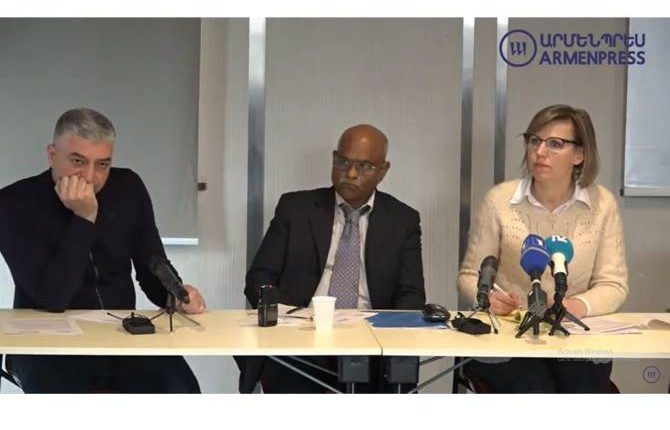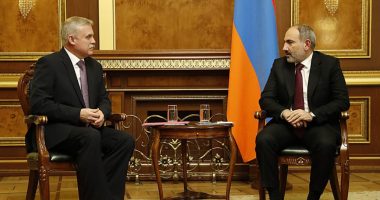YEREVAN — The UN sent allegation letters to Azerbaijan and Turkey for involving mercenaries in the war unleashed against Artsakh in 2020, the members of the UN working group on the use of mercenaries, who have arrived in Armenia, said in a press conference.
The group’s mandate was formed at the initiative of the UN Human Rights Council. The mandate of the group covers broad areas, including involvement of mercenaries and the use of private military and security companies from the perspective of human rights violations. Within the framework of that mandate, the working group conducts visits to countries, and the visit to Armenia is one of them. The group receives reports of alleged human rights violations from various sources.
“Our group has already received a report in 2020 about the use of mercenaries. And back at that time we had already responded, acted, presented an appropriate message,” said group member Jelena Aparac from Croatia.
The group’s visit to Armenia has been prepared for a long time with the Armenian authorities.
“At the moment, the information that has reached us mainly concerns the two mercenaries who were taken prisoner, who were charged, a court process was started, hearings were held. We are still collecting information on all that,” she said.
The group acts on the basis of information provided to it, which may be provided by NGOs or any other source. Fact-finding is done through a formal process, that is, information is obtained from an official source, and based on that information, they can determine who is responsible for the given incident. Ravindran Daniel, a member of the task force, stressed that they cannot act based on information that is not provided by official sources.
“We have a tool called “allegation letter”. We present it to states and non-state structures,” said Jelena Aparac.
Referring to the clarifying question whether letters of allegation have been sent to Azerbaijan and Turkey, she gave a positive answer.
The task force noted in its 2020 thematic reports that the use of mercenaries and private security firms is increasing globally. As for the consequences of letters of allegation, unfortunately, the task force’s mandate on that matter is quite limited. “We can get answers. Those answers are public. And then other concerned parties should use our allegation letters, responses to them and take measures based on them: these can be NGOs, international organizations, other states,” said Jelena Aparac.
Ravindran Daniel noted that as a result of their work, problems became more visible, which happened in 2020.
The members of the working group positively assess that Armenia has ratified the UN International Convention “Against the Recruitment, Use, Financing and Training of Mercenaries”.
The working group has submitted a request to pay a visit to Azerbaijan, but has not yet received a response.










